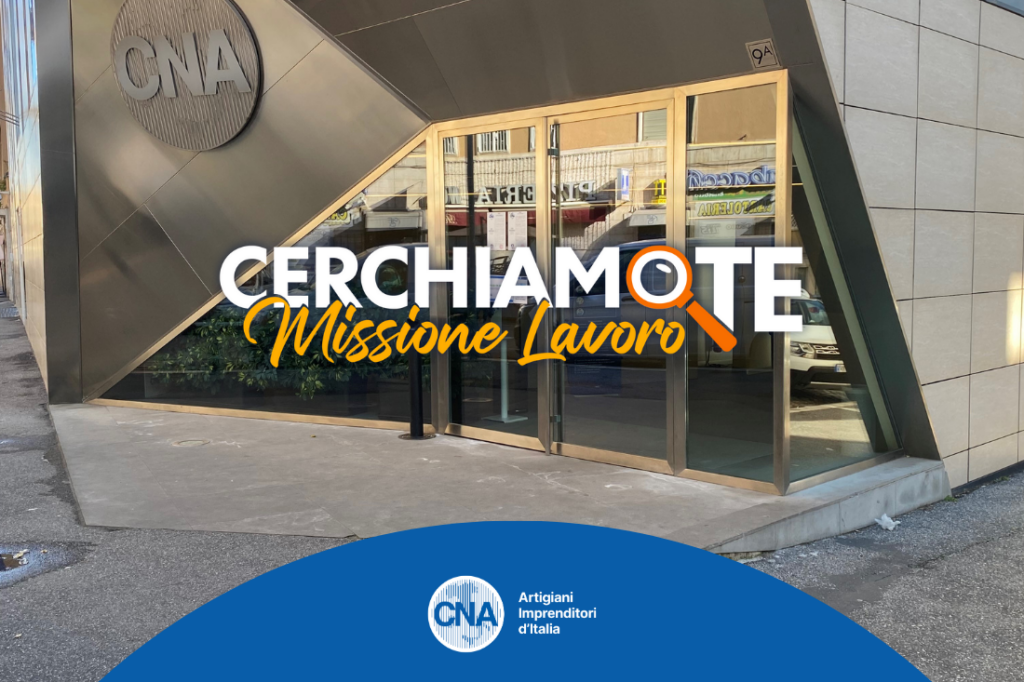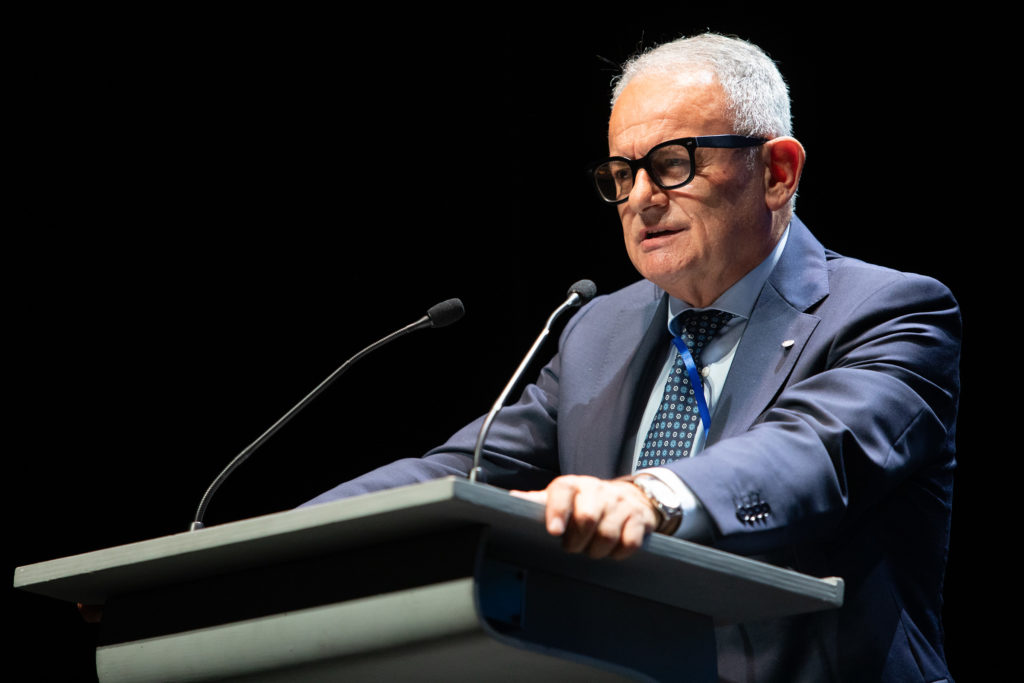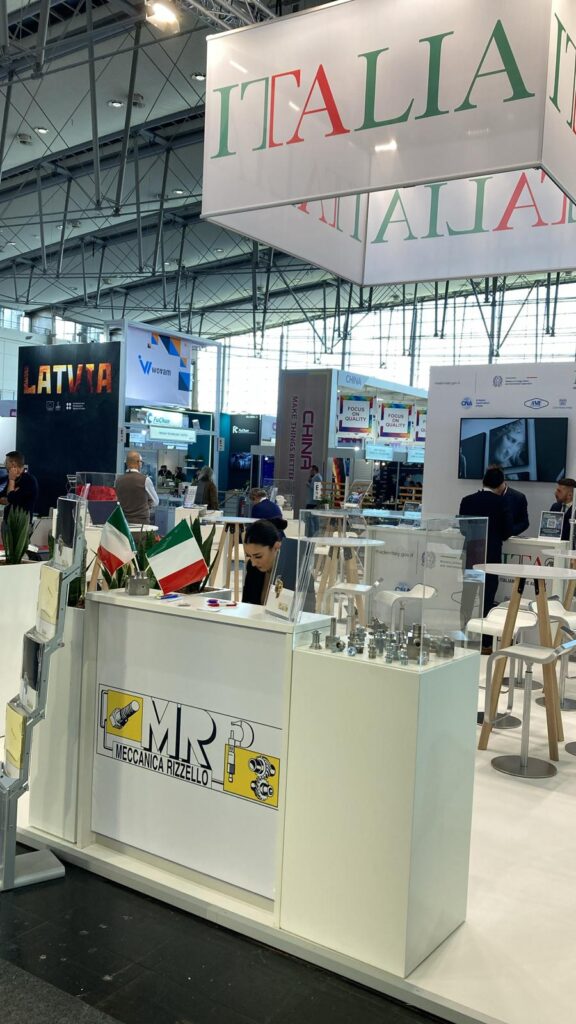Leggi la versione in italiano
From today we start again, together, with the first story of CNA Storie. Every month we will convey the hopes, visions and projects of real entrepreneurs who speak to women and men like them. Who have stories of extraordinary normality to tell, inspired by traditions that meet innovation and caring for the environment. We give voice to the protagonists of these courageous enterprises because with their hope and stubbornness they are the ideal springboard for starting over; by Paola Toscani
Francesca Petrini is the owner, with her brother Cristiano, of the Fattoria Petrini, a farm in the province of Ancona that specialises in the production of extra virgin olive oil. She has a long list of achievements: in 2014, the ITWIIN Award for best inventor 2014 was won by Francesca, while last summer their precious organic olive oils gained The WineHunter Award. The latest is the presentation of the company as a best practice in the Roman event leading up to the UN pre-summit on Food Systems, which is currently being held in Rome.
Francesca Petrini, the Mediterranean diet is a candidate for the podium for the best food systems in the world. After the threats of labelling extra virgin olive oil and Parmesan with shocking images like those of cigarettes and taxing them as if they were junk food, such recognition was needed…
It’s certainly a good response. We’re moving towards the definition of the universal diet, that is, the best food system from a point of view of nutrition and sustainability: this was discussed by the UN at the pre-summit on Food Systems and will be discussed in September at the Food Systems Summit 2021. The Mediterranean diet is among the favourite food models: balanced, sustainable and rich in quality ingredients.
In the early 1990s you were pioneers in organic farming, when it was still surrounded by prejudices. How did you manage to overcome them?
Simply by believing in the combination of environmental vocation and know-how. Our olives are healthy, because they’re not treated with pesticides and plant protection products, which dry up the land. We didn’t invent anything: in the Marche region the organic farming method has been regulated since 1978, but when we started we were seen as aliens. The whole traditional agricultural world was against us.
Why did they criticise you?
Organic was perceived as subversive, contrary to scientific truth and progress. As well as being uneconomical. Then add to that the fact that consumers at the time weren’t only unprepared, but even hostile towards a product that they perceived – it’s incredible to say this today – as unhealthy. In short, organic then seemed to be the whim of a bunch of fanatics. An ideology. We had to build a market from scratch, making investments; struggling one commercial rejection after another. These have been years of great effort.
We had to build a market from scratch
Sustainability has always inspired your business today. And tomorrow?
Sustainability is a question of justice between generations: what I consume today mustn’t compromise what those who’ll come later can enjoy. In short: we all have a duty not to exhaust what we know we can’t regenerate. It’s right that each generation satisfies its own needs, but without preventing the next ones from doing the same. And given that agriculture has a huge impact on the consumption of the planet’s resources, we have to ensure that it’s increasingly active in carbon capture and produces less in emissions.
And what would you say today to those who initially claimed that organic was uneconomical?
That following sustainable models is absolutely a profitable path, net of all the inevitable efforts borne by those who lead the way. Just look at how much agri-food has grown, the second manufacturing sector after mechanics, which accounts for 15% of the GDP. In this system, organic is growing in double digits: is that enough to convince the sceptics that it’s the right path for their business, as well as for the environment?
In short, it’s the very concept of commodities that assumes a different value…
Yes. This is a world in which the value of the product is no longer just its intrinsic value, not to mention the work and investment, but it’s a sum of all these things and how the process is guided. Starting with the ethical management of the workforce.
Even waste can have a new life, so much so that we talk about secondary raw materials. Is it sensible to bet on the circular economy today?
We’re convinced of it. In our small way, we’re an example of a closed-circuit economy: we haven’t produced waste for 30 years. From the olive tree we take the olives, which we process. The olive in turn is made of oil, water and the stone. The water and stone then become secondary raw materials, which we use as fertiliser and compost. The rules of the organic method wouldn’t prevent us from buying lovely, ready-to-fertilise products. It would be simpler perhaps, but we prefer to use our own waste which contains precious organic substances for our soils.
Where would this waste go otherwise?
The olive pomace would be sold to pomace mills to obtain pomace oils, which involves complex chemical processes. The same goes for the vegetation waters, sold to companies that deal with their collection and disposal. Not without an increase in costs.
How do you publicise the value of your work, to make consumers more aware?
Using experience as a process to arrive at the truth has been a powerful means. We’ve believed in experiential tourism for 30 years and, together with the local institutions, we launched the “Homo Faber” project on experiential tourism. A link between the consumer, the tourist – let’s say the user in general – and the workshop, the laboratory, the oil mill… To bring together and introduce the rich world of the artistic tradition of craftsmanship, restoration centres, maintenance of the cultural and agri-food heritage.
What kind of activities tourists/consumers do on the Petrini Farm?
We help them to know and recognise good oil compared to low quality oil, which is the result of uncertain processes. In our company, tourists relive our know-how and experience. Since we made this choice, our turnover has doubled. This seems to us the best way to build up customer loyalty: to help people know from scratch what they’re bringing to the table …
… which comes directly from the family oil mill …
Sustainability is a question of justice between generations. We all have a duty not to exhaust what we know we can’t regenerate
The oil mill wasn’t there yet when, in the 1960s, the olive trees were nothing more than a hobby for our grandfather Imolo. In fact, when I was a child, we lived in the city, where my father ran a large rubber-flooring company. He had 120 employees working for him and his business was turning over 13-14 billion lire a year (former italian currency, the equivalent of 6, 7.5 billions euro ndr). At the end of the 1980s, the doctor told him, “Either you change your life, or life will change you.” My father made his choice, and we moved from the city to the countryside. Our oil mill was built in 1990; today we produce 400 quintals of oil every year. My grandfather’s 2,000 olive trees have become 10,000. Our story is born from those plants: a choice of health and responsibility, towards ourselves and for future generations.












